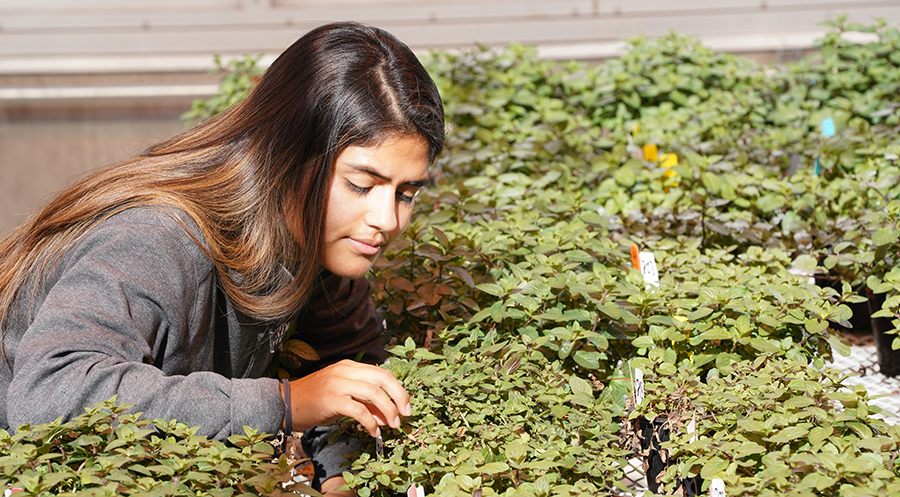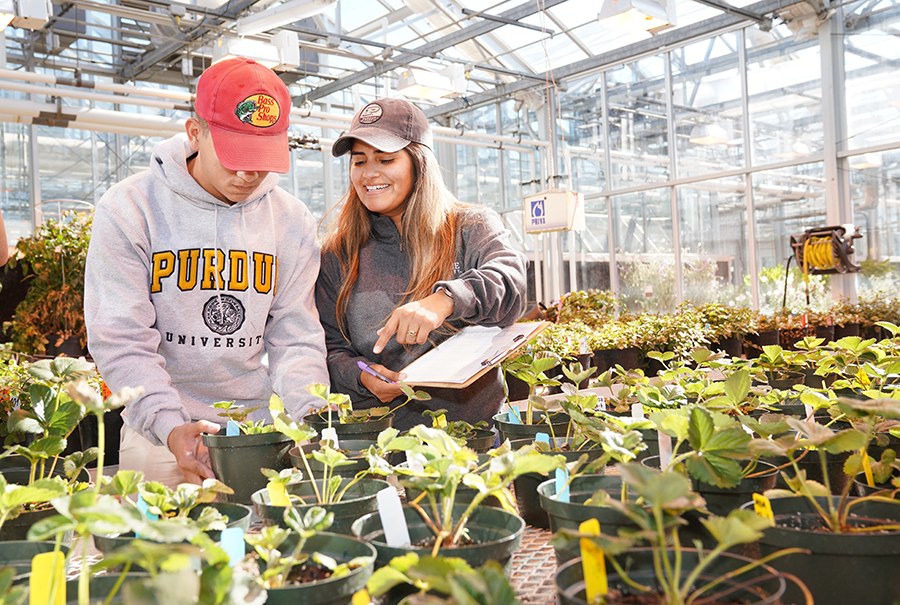Jeanine Arana - Graduate Ag Research Spotlight
“After I see a farmer has implemented something from my research, I know what I did is out in the world, and that I helped a farmer.
- Jeanine Arana, PhD student, Department of Horticulture and Landscape Architecture
The student

A self-described “city girl” from Managua, Nicaragua, Jeanine Arana admits that she took the food she ate for granted. Her perspective changed, however, after she arrived at Zamorano University in Honduras to study agribusiness. “I saw where my food came from — how it was grown, processed, harvested,” she says. “I was amazed. How could I never have thought about this?” Arana changed her major to agricultural sciences and production, which includes both plant and animal sciences. Her university requires an internship prior to graduation, and Arana completed hers in poultry science at Auburn University. After earning her degree, she worked briefly in mango export certification in Nicaragua before coming to Purdue in 2019 as a Visiting Scholar under the guidance of Professors of Agronomy Robert Nielsen and James Camberato. Inspired by the agronomy graduate students she met, Arana sought a master’s degree program for herself and found it with Stephen Meyers, assistant professor of horticulture and landscape architecture (HLA). She completed her MS in spring 2022 and began a PhD under Meyers’ advisorship in summer 2022. “I was never part of the agricultural world, but my country is an agricultural country,” she says. “Basically I learned from zero and fell in love with agriculture.”
The research
“Weed science is the control of unwanted plants in crop production,” Arana says of her research focus. In her master’s research, she studied weed management in Indiana cucurbit crops as well as morning glory’s interference with watermelon production. As a doctoral student, she has three projects underway involving strawberries, including a varietal trial and study of weed control in plasticulture production at Southwest Purdue Agricultural Center and Meigs Horticultural Farm. “When I mix my research with talking to farmers, going to conferences and writing articles, I understand the purpose of what I’m doing,” she says. “The most important part is that we work with farmers.”
Opportunities

Arana credits Meyers with encouraging her participation in conferences, which she says appeals to her competitive nature. She has received five awards for poster, paper and video presentations at meetings of the North Central Weed Science Society and Weed Science Society of America. She has published two first-author journal articles and co-authored two more, and has written for Purdue’s Vegetable Crops Hotline newsletter. She co-chaired the Graduate Student Plant Sciences Symposium sponsored by Corteva and is president of the HLA Graduate Student Organization. Arana has spoken to growers across the state at field days and in webinars. “I was more nervous than in a conference, but I enjoyed it,” she says. “When the farmers ask questions, you understand that there’s a lot they want to know.”
Future plans
With three to three-and-a-half years of PhD work ahead, Arana’s career plans remain open. In her spare time she enjoys watching movies, especially scary ones, and spending time with friends. She is active in Purdue’s Zamorano alumni association and helps other Zamorano students come to Purdue as visiting scholars and navigate the graduate school application process. Her efforts earned Arana this year’s Diversity Action Team in Agriculture Unsung Diversity Hero Award (Student).





